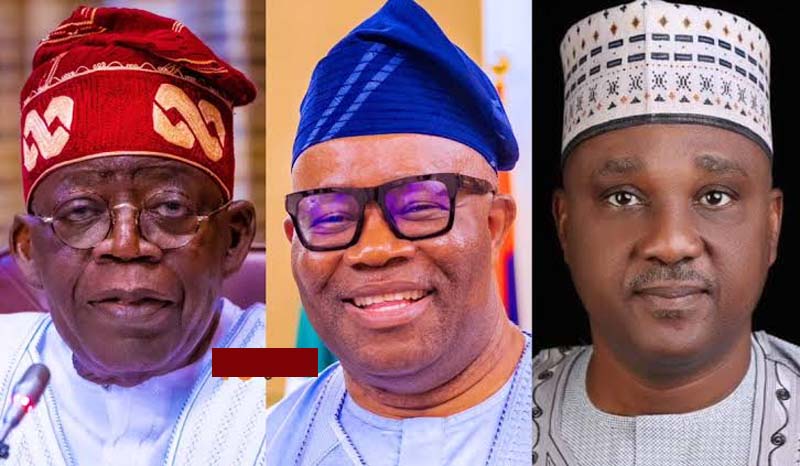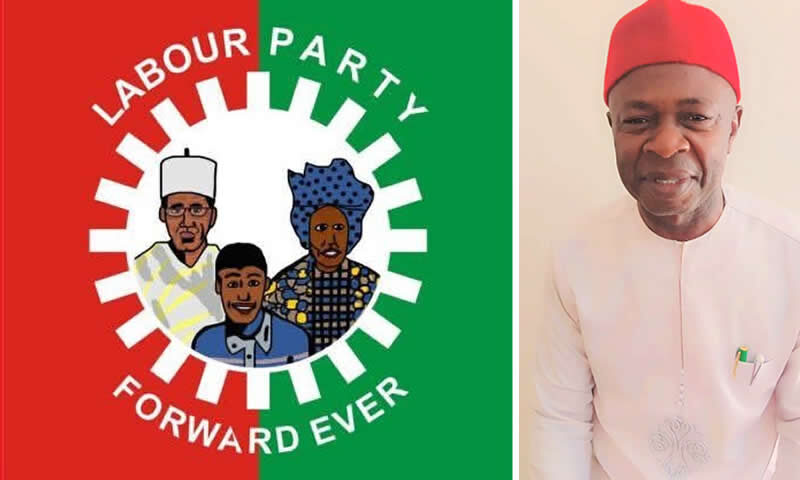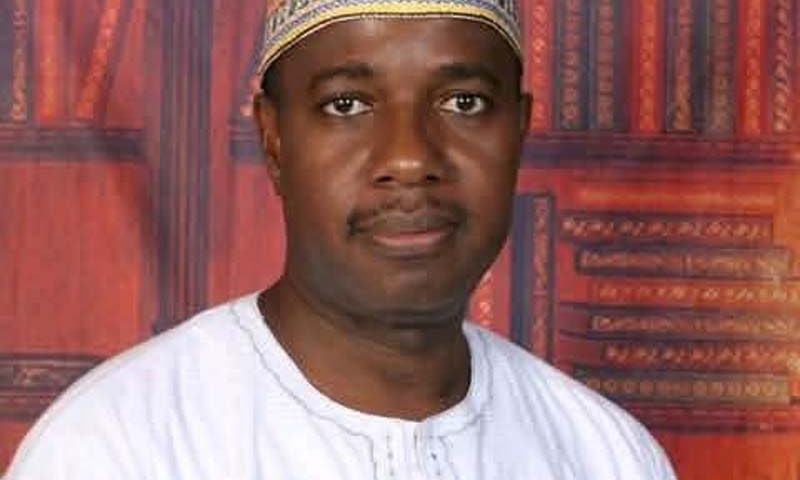Tinubu has elevated nepotism, cronyism and favouritism to statecraft just as he has demonstrated a sufficient taste for the ostentatious presidency with the purchases of a ‘KABUKABU’ JET
Emmanuel Onwubiko, founder of the Human Rights Writers Association of Nigeria (HURIWA)
Rt. Rev. Dr. Mathew Hassan-Kukah is easily the best-known Roman Catholic cleric out of Nigeria because of his deep knowledge of social sciences or social justice and governance facts and figures. Bishop Kukah has to his distinguished intellectual credit, more than one dozen publications on government.
Recently, Kukah, who is the Bishop of the Catholic Diocese of Sokoto, made a very frank comment that Tinubu didn’t come to the office of president prepared.
Whilst saying that Bishop Kukah’s statement is factually accurate, I beg to add that aside from not coming into office as president of Nigeria unprepared for governance, the current president of Nigeria has an agenda of collective impoverishment and oppression of the commoners of Nigeria and his central mantra is to empower himself, his close circle of friends, kinsmen and relatives who are in businesses and politics.
Tinubu has elevated nepotism, cronyism and favouritism to statecraft just as he has demonstrated a sufficient taste for the ostentatious presidency with the purchases of a ‘KABUKABU’ JET worth several billions of Naira, N5 billion worth of presidential yacht, rebuilt the house of the Vice President for N25 billion, and the gifting of houses illegally to judges of the federal high court and Appeal court in Abuja to ensnare and capture them as political hostages and to cripple the judiciary.
Above all, the most significant aspect of the governance style of the current Administration by Bola Ahmed Tinubu, the Asiwaju of Yorubaland, the Jagaban of Borgu, is the deployment of doublespeak, misinformation, disinformation and fake news as the central mantra of governance and this is done by his appointment of nearly 3 dozens of media practitioners as assistants just as he is the first president of Nigeria in modern political history without one spokesman.
Tinubu has three spokesmen all of whom earn cabinet-level salaries of federal ministers because his government made Special Advisers members of the Federal Executive Council.
One of these so-called media spokespersons is so unfit and incompetent that he has never even worked as a cleaner in any media organisation. Still, the President was appointed to spite Atiku Abubakar because this unfit spokesperson on policy issues was the campaign spokesman of Atiku Abubakar in the 2023 Presidential poll just as this cross-carpenter was the person who caused the most damage to the integrity and credibility of Bola Ahmed Tinubu. He even called the then APC’s Presidential candidate a convicted drug baron.
Today he is one of the three spokesmen of the President who has formed the largest federal cabinet in Nigeria more than any president in the history of Nigeria.
So, his special Advisers as well as Tinubu’s unelected son Seyi, have access to participate at the weekly FEC meetings. His is just a government of confusion and organised chaos.
My organisation, HUMAN RIGHTS WRITERS ASSOCIATION OF NIGERIA had told Nigerians about this latest show of doublespeak of President Tinubu’s government.
We expressed deep concern over the conflicting financial claims and borrowing policies of the Federal Government, questioning the management of Nigeria’s economy under President Bola Ahmed Tinubu. In a strongly worded statement issued on Friday, the civil rights group criticized the government for failing to align its rhetoric on savings with its actions on debt accumulation, warning that the inconsistency is damaging public trust.
HURIWA accused the government of misleading citizens and called for an immediate public disclosure of the savings’ details.
HURIWA expressed grave concerns over the rapid rise in Nigeria’s debt profile. As of June 2024, the nation’s total public debt stood at ₦134 trillion, climbing to ₦138 trillion by November. These figures represent a sharp increase from previous years, signalling a potential debt crisis.
“In a country where public funds are allegedly being saved and revenues generated in trillions, the persistent borrowing trend is not only baffling but unjustifiable. This pattern suggests either gross mismanagement or deliberate dishonesty,” HURIWA asserted.
The association criticized the National Assembly for its complacency, accusing lawmakers of rubber-stamping every loan request without proper scrutiny. “The legislative arm has a constitutional duty to safeguard the economic future of this country. Approving loan requests without critical evaluation undermines this responsibility,” HURIWA said.
HURIWA urged the Federal Government to halt unnecessary borrowing, emphasizing the need for fiscal discipline. Drawing comparisons to Nigeria’s early leaders, the association noted that post-independence and post-civil war governments managed the economy without plunging the nation into insurmountable debt.
HURIWA further criticized the disconnect between government claims of substantial revenue generation and the visible economic realities. “The Nigerian Customs Service has reportedly generated trillions of naira, yet these figures have no tangible impact on economic relief for citizens. Where are these trillions being channelled?” the association questioned.
HURIWA called on civil society organizations, professional bodies, and Nigerians at large to hold the government accountable for its fiscal policies. The group emphasized that unchecked borrowing and financial mismanagement would have dire consequences for future generations.
The association also called for a review of all loans secured by the current administration and its predecessors to ensure that borrowed funds are not misappropriated. “We cannot continue to mortgage the future of this country with loans whose utilization is shrouded in secrecy,” HURIWA said.
What then is good governance? I will give an extensive citation from the authoritative piece scripted by the Office of the High Commissioner for Human Rights.
The version of the conceptual definition given by the United Nations Department is exhaustive in telling us how not to govern a sovereign nation by telling us in greater detail what good governance is. And from what the UN wrote on good governance, it is clear that Tinubu’s government is not a respecter of the principles underpinning good governance.
About good governance
OHCHR and good governance:
About good governance and human rights
What is good governance?
Governance refers to all governing processes, the institutions, processes and practices through which issues of common concern are decided upon and regulated. Good governance adds a normative or evaluative attribute to the process of governing. From a human rights perspective, it refers primarily to the process whereby public institutions conduct public affairs, manage public resources and guarantee the realisation of human rights.
While there is no internationally agreed definition of ‘good governance’, it may span the following topics: full respect of human rights, the rule of law, effective participation, multi-actor partnerships, political pluralism, transparent and accountable processes and institutions, an efficient and effective public sector, legitimacy, access to knowledge, information and education, political empowerment of people, equity, sustainability, and attitudes and values that foster responsibility, solidarity and tolerance.
In summary, good governance relates to the political and institutional processes and outcomes that are necessary to achieve the goals of development.
The true test of ‘good’ governance is the degree to which it delivers on the promise of human rights: civil, cultural, economic, political and social rights.
The key question is: are the institutions of governance effectively guaranteeing the right to health, adequate housing, sufficient food, quality education, fair justice and personal security?






